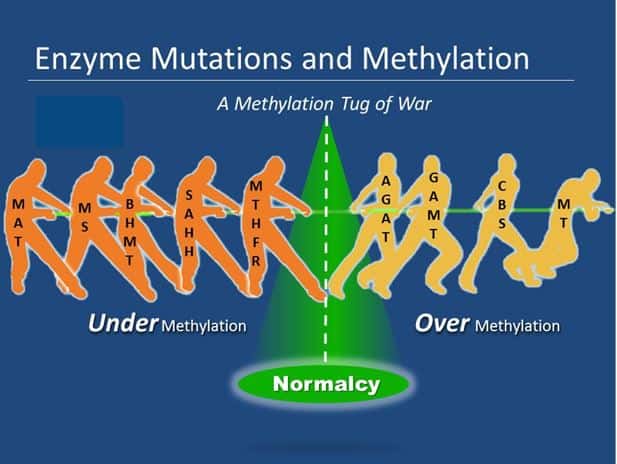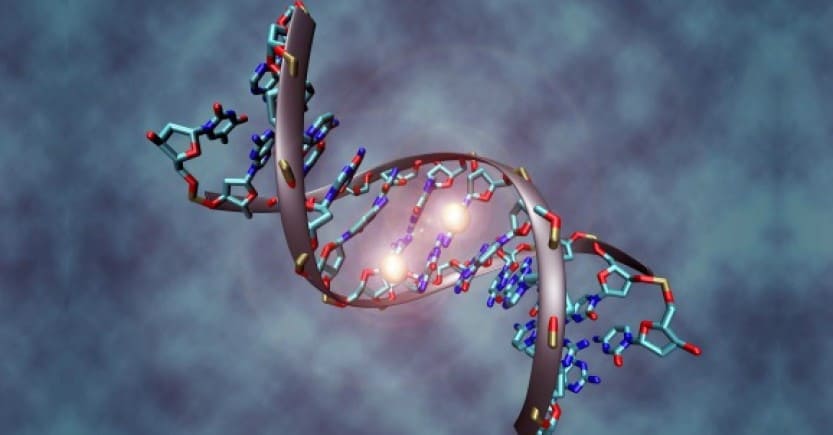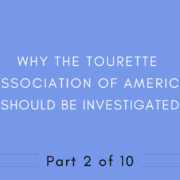Dr. William Walsh on Autism, OCD, PANDAS, Depression and Methylation
WILLIAM WALSH, PHD
Sheila Rogers DeMare: Dr. William Walsh, founder and president of the Walsh Research Institute, is an international expert on nutrient-based psychiatry, including approaches to methylation. We posed several questions to him that had been received from our readers and he was kind enough to reply. He is a member of our ACN Latitudes advisory board, and we greatly appreciate his time and expertise. See WalshInstitute.org
Do you think autism is reversible, and if so, what approach does your research suggest would be most effective?
Dr. Walsh: Autism is very treatable and complete recovery is possible in young persons whose brains have not completed the early development process. I‘ve worked with thousands of patients with an autism spectrum disorder and seen hundreds who achieved full recovery after biochemical therapy and a special diet. Early intervention is essential. We can make more progress in a month with a two-year-old than in six months with an eight-year old. It’s becoming increasingly clear that autism is an epigenetic gene-regulation disorder in which environmental insults alter DNA methylation.
Treatment success requires powerful antioxidant therapy, a toxic-free environment, and coping with G.I. tract problems. I believe the greatest progress can be made with brain-directed therapies that promote development of brain neurons and synapses to enable improved cognition, speech, and socialization. My personal favorite is metallothionein-promotion therapy.
Many of our readers deal with obsessive-compulsive disorder (OCD). Would you please summarize the role of histamine in OCD.
Dr. Walsh: More than 90% of OCD patients are undermethylated with low neurotransmission at serotonin and dopamine receptors. In addition, many have low activity at N-methyl-D-aspartate (NMDA) receptors.
For years we have used whole blood histamine as a laboratory marker for methylation status. Another good lab test for methylation status is the SAMe/SAH ratio test offered by Doctors Data, Inc. Neither of these lab tests is perfect, but they are more reliable than present genetic testing for determining if a patient is undermethylated, overmethylated, or in the normal range.
If someone seems to have symptoms of low histamine, are there ways to increase histamine levels? And if histamine is too high, what should be done.
Dr. Walsh: About 30 years ago, the great Carl Pfeiffer, MD, PhD, believed that histamine’s role as a brain neurotransmitter was a central factor in schizophrenia and other mental disorders. Since Pfeiffer’s death in 1988, we’ve learned this is not correct and that methylation imbalances (a) cause abnormal histamine levels and (b) have a major epigenetic effect on mental health. Methylation is the primary process for metabolizing (destroying) histamine and there is a convenient inverse relationship between histamine levels and methylation status. Our treatments are not aimed at normalizing histamine, but in dealing with the brain disorders associated with overmethylation or undermethylation.
Nutrient therapies for treating undermethylation are well known, but great care must be used in the case of undermethylated persons with low serotonin activity. Folic acid, folinic acid, and methylfolate all act as serotonin reuptake promoters by an epigenetic mechanism,the opposite of what these patients need.
There is increasing evidence that folates act as deacetylase inhibitors that enhance gene expression of SERT reuptake proteins known as “transporters”. Serotonin reuptake is a far more dominant factor than the amount of serotonin present. Folate supplements (together with B-12) are very effective in improving methylation in most undermethylated persons. However, folate supplements should be avoided for undermethylated patients who suffer from depression, anxiety, or other mental disorders that involve low activity at serotonin receptors.
Recent advances in epigenetic science have provided a roadmap for effective natural therapies that can regulate activity of serotonin, dopamine and other neurotransmitters without the side effects associated with antidepressant drugs. I believe that the need for drug therapies will gradually fade away as brain science advances.
Have you seen any children with a PANDAS/PANS diagnosis, and do you think there is a nutritional way to avoid or treat such severe behavioral and neurological reactions to bacterial, viral, or other types of infections?
Dr. Walsh: PANDAS/PANS has many characteristics of an epigenetic gene-regulation disorder especially (a) sudden onset, (b) a multitude of serious symptoms, (c) a condition that is difficult to treat, and (d) a condition that can persist for years after onset. Epigenetic disorders are caused by environmental insults that alter DNA methylation or other gene-regulation factors.
I’ve only seen a few dozen children diagnosed with PANDAS and do not consider myself an expert in this disorder. I have noticed that most of these children exhibit severe undermethylation and oxidative stress. Also, a high percentage had elevated pyrroles and zinc deficiency. It’s hard to believe that nutrient therapies to correct these imbalances would not result in significant improvement. However, I have no outcome data for PANDAS/PANS.
Your research shows there are five types of depression, and you recommend that a different treatment approach should be taken for each type. How should a parent go about finding a doctor who can evaluate them to learn which type of depression they may have, and then offer suitable treatment?
Dr. Walsh: We have identified five chemical biotypes of clinical depression that represent about 95% of cases. Our classification system is based on studies of 2,800 patients, including more than 250,000 blood/urine chemistry results and an in-depth medical history. Until now, most mainstream experts have regarded depression as a single condition with variations along a central theme – low activity at serotonin receptors.
We have observed low serotonin activity in two of the biotypes, with different brain disorders dominating the other cases. We reported these findings at the annual American Psychiatric Association (APA) meeting in New York City this spring.
The undermethylation (38%) and pyrrole disorder (15%) biotypes involve low serotonin activity with many reports of improvement after SSRI antidepressants. However, these patients also respond to individualized nutrient therapy. High-copper (17%) depressives showed little response to antidepressants but reported great improvement after copper-lowering nutritional supplements. The low-folate (20%) biotype consisted of patients who reported severe intolerance to SSRIs, but thrived on supplements of folates and B-12. The smallest biotype (5%) involved toxic metal overloads such as lead, mercury, cadmium, etc.
At the APA we recommended inexpensive blood/urine tests for all depression patients, and different treatment approaches for each biotype. This is a medical procedure that requires a practitioner experienced in these protocols. We are actively engaged in continuing medical education (CME) educational programs to enable doctors to incorporate these methods into their practices.
Our next USA training program will be this October in Illinois. A list of doctors using these protocols is provided on our website and in the appendix of my book Nutrient Power.
In your opinion, do people fall into either an overmethylated or undermethylated status or can you be an undermethylator in certain areas of the methylation cycle and an overmethylator in other areas of the cycle? If someone has some traits of an undermethylator and some traits of an overmethylator, what would you recommend?
Dr. Walsh: Based on my massive chemistry database, about 22% of the population is undermethylated and 8% overmethylated. These are inborn tendencies that usually persist throughout life. Undermethylation usually results from single nucleotide polymorphisms (SNPs) that weaken MTHFR or other enzymes in the methylation cycle. Overmethylation is generally caused by enzyme weaknesses (SNPs) in the SAMe utilization pathways.
Nutritional supplements, certain drugs, and special diets can adjust methylation, but the inborn tendency usually remains. We have evaluated the methylation status of more than 25,000 patients and controls and identified dozens of distinctive symptoms and traits associated with methylation imbalances. For example most undermethylators report allergies to ragweed and have a history of strong will, perfectionism, competitiveness, and OCD tendencies.
Overmethylators are usually characterized by excellence in music and art, empathy, excellent socialization, high anxiety, and food/chemical sensitivities. All of these traits are generalities with many exceptions and very few persons exhibit all of the traits associated with their methylation biotype. However, an experienced practitioner can usually predict the methylation lab results after a good medical history.
 Graphic: Courtesy of the Walsh Research Institute.
Graphic: Courtesy of the Walsh Research Institute.
What are your thoughts on using genetic testing, such as “23 and Me” to create an individual methylation roadmap/treatment plan.
Dr. Walsh: Genetic testing is quite inexpensive, highly accurate, reliable, and will certainly grow in importance in future years. These tests can already identify predispositions for many disorders such as breast cancer and Alzheimer’s and may soon obsolete the need for pap smears. However the reliability of genetic testing for assessing methylation is quite limited at present. Identifying SNP weaknesses in MTHFR and other methylation-cycle enzymes does not necessarily mean that individual is undermethylated. There is a “tug-of-war” competition between enzyme SNPs that weaken methylation and SNPs in the SAMe utilization pathway that can produce overmethylation.
Since the genetic information is qualitative and not quantitative, it is often impossible to determine the net methylation potential from genetic testing. Fortunately there are blood tests that can test for overall methylation status (the net effect of the competing SNPs), and I greatly prefer to use them – SAMe/SAH ratio and whole-blood histamine. In addition, blindly using methylfolate (Deplin) for patients with 677T MTHFR or other weakened enzymes can produce negative results in patients afflicted by low serotonin activity. Folate supplements including Deplin tend to drive serotonin activity even lower by an epigenetic mechanism (see third question, above).
The benefits from improving methylation are overwhelmed by weakened serotonin neurotransmission for these persons. Methylfolate supplements are a clever approach for coping with undermethylation in persons with MTHFR enzyme weaknesses. However the potency of methylfolate has been greatly exaggerated. The methylation cycle spins constantly with more than a million methylation reactions per second.
The methylation cycle somewhat resembles the Indianapolis Speedway with traffic constantly spinning around the track. Methylfolate is what I call a “suicidal” nutrient, that is, a nutrient that acts only once. After a single pass through a portion of the cycle, methylfolate loses its identity and becomes part of the garden-variety THF pool. Methylfolate is somewhat more effective that folic acid and folinic acid, but is not as effective as advertised. The bottom line is that methylfolate and other folate supplements are very effective in enhancing methylation for autism and other conditions that are not dominated by low serotonin activity.
In your book Nutrient Power, you frequently use the term “methyl” as in the methyl/folate balance and in giving methyl to address neurotransmitter imbalances. What is methyl? Do you mean methylcobalamin.
Dr. Walsh: The occasional use of methyl in my book is shorthand for methyl donors such as methionine and SAMe. Twenty years ago I presented a paper at the annual APA meeting describing the opposite effects of folate supplements and methyl donors on neurotransmitter activity and began using the term methyl/folate ratio. I believe it’s time to find a better expression for this factor.











Thanks, Dr. Walsh — that was very helpful. I don’t fully understand everything about this, but from what I have read I think I might be undermethylated (yet I also have chemical and food sensitivities).
The best blood test to determine methylation (over or under) is the whole blood histamine. One lab that offers the testing (and you can receive a clinical consultation) is Direct Healthcare Access II Laboratory.
what if the patient has atopic dermatitis and multiple food allergies and thus increased levels of histamines? would that not lead to wrong conclusions?
Is there a list of recommended practitioners for Australia?
I could really do with getting this sorted out but have no idea where to go.
I was going to pay for a Yasko gene test but according to this article, that could be redundant?
Yes, please visit the Walsh Research Institute website – http://www.walshinstitute.org. Physicians using Dr. Walsh’s recommended testing and nutrient protocols are listed under Resources (then Clinical Resources). Here is the link: http://www.walshinstitute.org/clinical-resources.html.
The problem with Walsh’s hypotheses, is that most of his work was done with FOLIC ACID, which should never be taken or eaten (as a part of enriched foods) as it is synthetic and will block the natural forms of folate, creating a methylation block — this is well known.
Folinic acid is well known for helping with sleep issues, especially in autistic children, but also adults. It’s hardly creating OCD or some of these other things he mentions. Google Dr. Ben Lynch for the latest, up to date info regarding methylation.
I have a son who is very depressed if he takes methylfolate or folinic acid. The only way to stop his depression is a low folate diet and no folate supplements. This started after he had mononucleosis.
What does someone do if they are low serotonin and react really badly to folate but they do have the mthfr snp? Obviously the mthfr and needs to be opened at some point with the folate. When does that step come into play? How can I get my seroton in levels high enough so that it becomes safe ton open mthfr? I am on tryptophan and it really helps but th r minute I take folate my serotonin drops to dangerous levels despite having been on the tryptophan for months.
como hago para obtener informacion sobre este tratamiento
en habla ispana
por favor
mi correo es: ndaza804@gmail.com